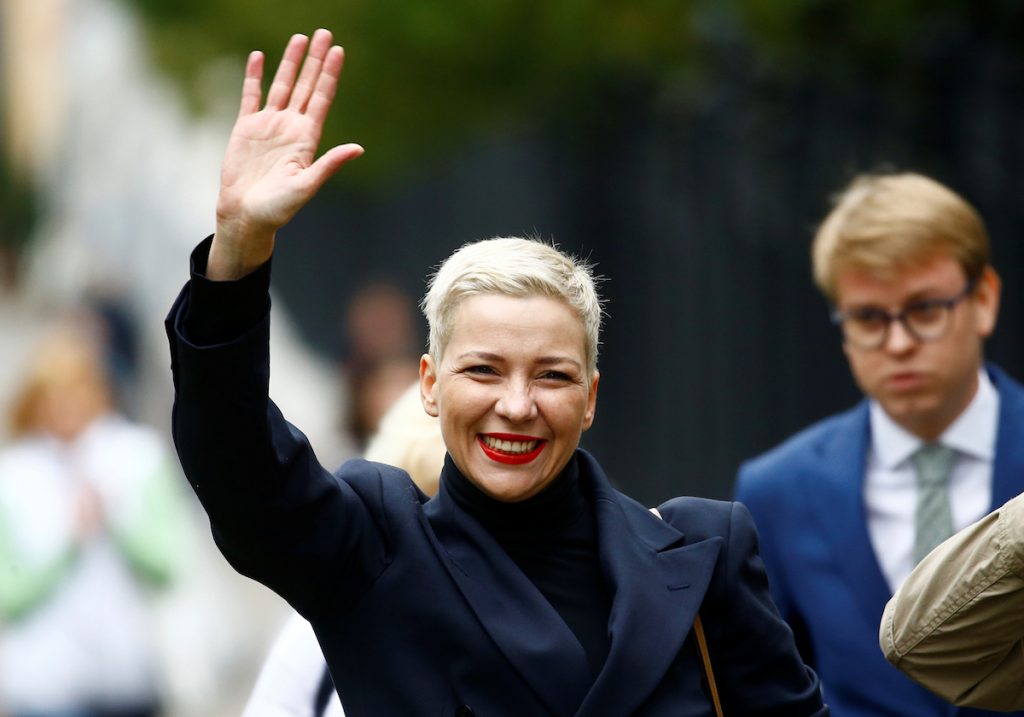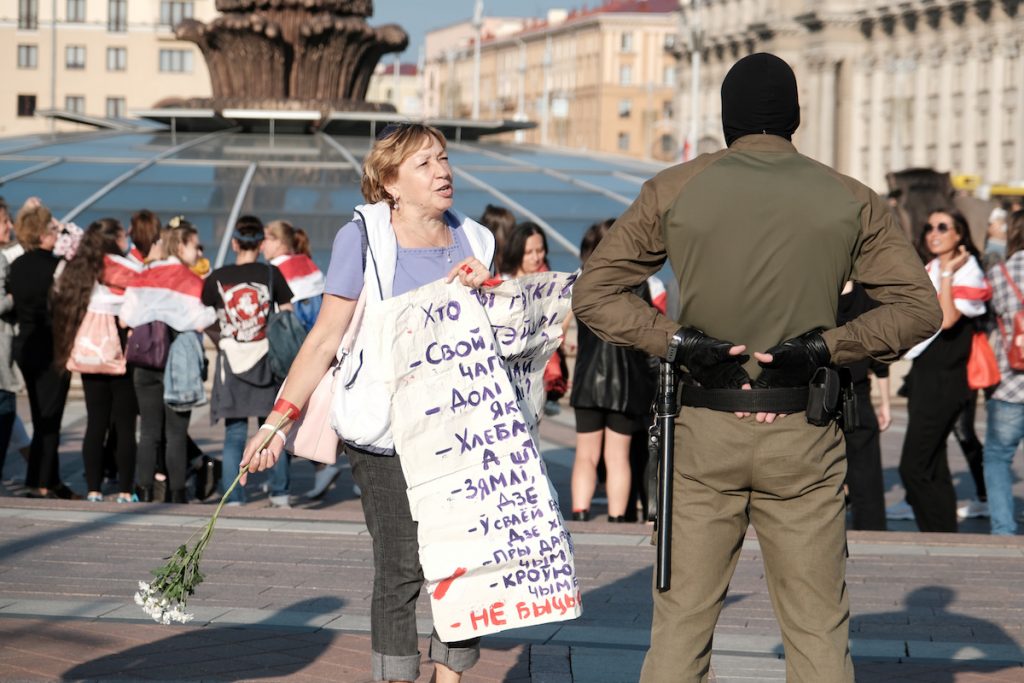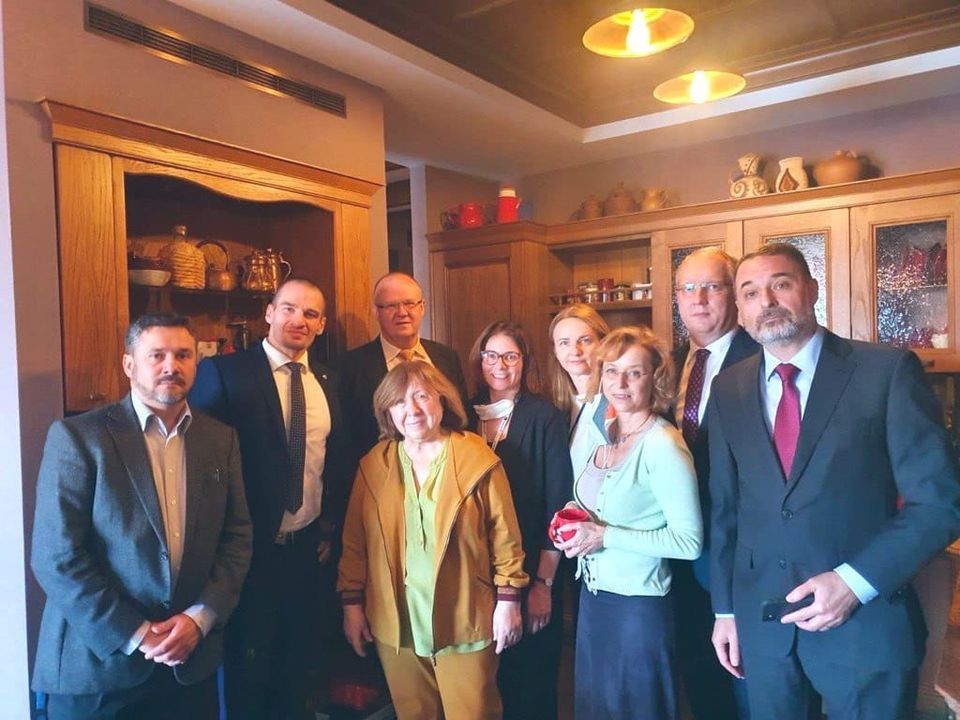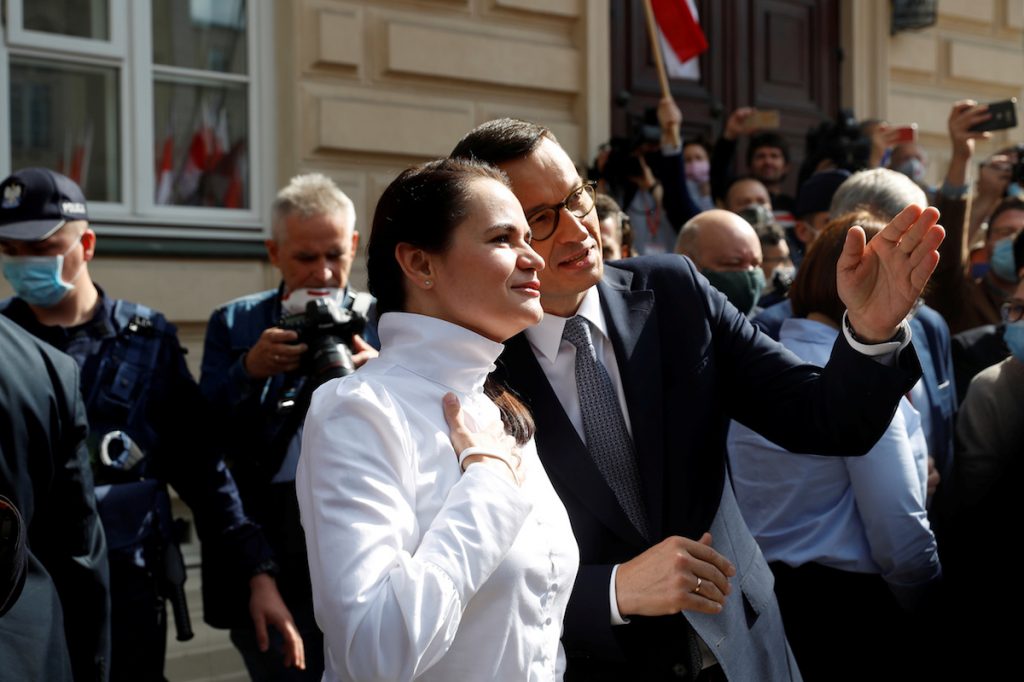Belarus: authorities double down on repression and propose "reforms"
The Belarusian authorities have doubled down on actively repressing the opposition. Opposition leaders continue to be detained — Maria Kalesnikava, who tore apart her passport so that she could not be deported from the country, is in prison.
The security forces have begun to detain the remaining members of the Opposition Coordination Council.
The last remaining member of the council, the Nobel laureate Sviatlana Aleksievich, was detained while under the protection of foreign diplomats. Nevertheless, the revolution in Belarus cannot be stopped, experts say.
One of the most active opposition leaders is in prison
One of the leaders of the Belarusian opposition, Maria Kalesnikava, who refused to leave Belarus, is in a pre-trial detention center. As Euroradio reports, her father has been alerted to her situation. Previously, there had been no reports about her whereabouts.
Opposition Coordination Council member Maria Kalesnikava was detained on September 7 in the center of the capital, where they tried to force her out of the country. However, Kalesnikava ripped up her passport. As a result, she was brought back to Minsk.

Council members Anton Rodnenkov and Ivan Kravtsov were also detained along with Kalesnikava. Kalesnikava was put in a car on the border with Ukraine, where Rodnenkov and Kravtsov were already waiting to deliver them to the Ukrainian side. However, Kalesnikava managed to avoid forced deportation.
“When she got in the car, she saw her passport, grabbed it and immediately tore it up. After that, she crawled out of the car through the window, because the back doors were blocked”, says Anton Rondnenkov, describing what happened in an interview with Novaya Gazeta.
• Who will come out on top in Belarus – the opposition or the authorities? Analysis
Detentions continue, Nobel laureate awaits her turn
Lawyer and member of the Presidium of the Coordination Council Maksim Znak was detained in Minsk on the morning of September 9. He managed to write the word “masks”, and was only able to utter the phrase “it looks like someone just showed up” over the phone before his communications cut out.
Later it became known that he was detained in connection to the case against members of the council for “public calls for actions aimed at causing damage to national security”.
The Coordination Council was created on the initiative of the main presidential candidate in Belarus, Sviatlana Tsikhanouskaya. It included 33 people – politicians, activists, and representatives of the intelligentsia and the working class.

Now only the Nobel laureate, writer Sviatlana Aleksievich remains free in Belarus. The rest were either detained or forced to leave the country.
“First, the country was stolen from us, now the best of us are being kidnapped…But hundreds of others will come to replace those taken from our ranks. It is not the Coordination Council that revolted. It is the country”, said Aleksievich.
Aleksievich’s video ends by her saying that a stranger was ringing her doorbell again.
Foreign diplomats from the Czech Republic, Slovakia, Sweden, Austria, Romania and other countries reacted to the writer’s appeal. They came to her apartment to protect her from possible detention.
“We have received information that strangers are turning up outside her apartment, probably from the security service or the police. We decided that she was in danger of being detained”, said the Lithuanian ambassador.

Lukashenko admits that he may have overstayed his welcome, but is not ready to leave yet
“Yes, maybe I’ve sat on the president’s chair a little too long. It’s possible that I’m being shown not only on TV, but from every iron and tea kettle as well. But in truth, only I can protect Belarusians right now”, he told Russian journalists. “I won’t leave just like that”.
Lukashenko announced that he is not going to speak with the coordination council created by the opposition, because he “doesn’t know who these people are”.
He added that he is ready to introduce reforms to the constitution, after which he is “not excluding the possibility” of holding early presidential elections.
On September 8, news broke that the Belarusian authorities are ready to carry out a constitutional reform by 2022.
Reactions from the US and Europe
The US is deeply concerned by the reported abductions of coordination council members Maria Kalesnikava, Anton Rodnenkova and Ivan Kravtsov in Belarus, announced the US Secretary of State Mike Pompeo.
We commend the courage of Ms. Kalesnikava and of the Belarusian people in peacefully asserting their right to pick their leaders in free and fair elections in the face of unjustified violence and repression by the Belarusian authorities”, read Pompeo’s statement.
He noted that the United States, in coordination with partners and allies, is considering the introduction of additional sanctions to bring to justice those who are involved in human rights violations and repression in Belarus.
On September 9, Polish Prime Minister Mateusz Morawiecki met in Warsaw with former presidential candidate Sviatlana Tsikhanouskaya.
“We are following your struggle with enthusiasm, we respect your determination and purpose in the struggle for a sovereign, free Belarus”, said Morawiecki. He added that Poland will soon present a plan for economic assistance to Belarusian business, students, independent media, and the opposition.

Leader of the Belarusian opposition Sviatlana Tsikhanouskaya and Prime Minister of Poland Mateusz Morawiecki. Warsaw, September 9, 2020 REUTERS / Kacper Pempel
An unstoppable revolution?
Representatives of the Belarusian opposition say that neither proposals for constitutional reform, nor repression will stop the protests.
“We see that the regime is trying to ease the pressure [from the public society] and at the same time bargaining, trying to appease people in this way. But it won’t work – people don’t want to wait two years. And new arrests will only accelerate the fall, because the arrests that came before this only acted as a catalyst for the protests”, said coordination council member Andrei Rodchenkov, who was deported to Ukraine, in an interview with Novaya Gazeta.
Ruslan Shoshin, a Polish journalist and political commentator of Belarusian origin, draws a parallel between the events in Belarus and the events that preceded the fall of the communist regime in Poland.
“It is impossible to stop the revolution in Belarus, the hatred towards the authorities is growing, people are coming out from all suburbs, streets and cities. Lukashenko has only two options: martial law or a round table. Or martial law, and then a round table. Or the Ukrainian Maidan”, writes Shoshin on his Facebook page.



















